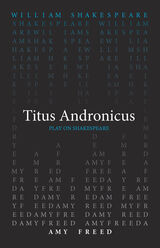
Shakespearean Metadrama was first published in 1971. Minnesota Archive Editions uses digital technology to make long-unavailable books once again accessible, and are published unaltered from the original University of Minnesota Press editions.
In a new approach to Shakespeare criticism, the author interprets five of Shakespeare's early plays as metadramas, dramas that are not only about the various moral, social, political, and other thematic issues with which critics have so long been concerned but also about the plays themselves. Professor Calderwood demonstrates that in these five plays Shakespeare writes about his dramatic art -- its nature, its media of language and theater, its generic forms and conventions, its relationship to truth and the social order.
In an introductory chapter the author explains his theory of metadrama, placing it in a general critical context as well as in the specific framework of Shakespeare's plays. He distinguishes between the meaning of metadrama and the similar terms "metaplay" and "metatheare." He points out that the dominant metadramatic aspect of the five plays under study is the interplay of language and action in drama. A separate chapter is devoted to the interpretation of each of the plays.
Professor Calderwood is aware that in presenting his critical theory and interpretations he may be met with skepticism by other scholars and critics. He anticipates such a situation in the introduction: "To the critic trying on introductory styles for a book on Shakespearean metadrama," he writes, "the plight of Falstaff at the Boar's Head Tavern comes all to readily to mind. 'What trick," he must ask himself, 'what device, what starting-hole, canst thou now find out to hide thee from this open and apparent shame?'"

One of Shakespeare’s goriest plays, Titus Andronicus traces the fall of the Andronicus family in ancient Rome. Clinging to the ways of the past, Titus desperately seeks to remain loyal to the throne as his world crumbles around him. Amy Freed’s translation of Titus Andronicus is careful and meticulous, making small but mighty changes in moments that enhance the drama of each scene. Freed’s version gives this extraordinary play an even faster track on which to run.
This translation of Titus Andronicus was written as part of the Oregon Shakespeare Festival’s Play On! project, which commissioned new translations of thirty-nine Shakespeare plays. These translations present work from “The Bard” in language accessible to modern audiences while never losing the beauty of Shakespeare’s verse. Enlisting the talents of a diverse group of contemporary playwrights, screenwriters, and dramaturges from diverse backgrounds, this project reenvisions Shakespeare for the twenty-first century. These volumes make these works available for the first time in print—a new First Folio for a new era.
READERS
Browse our collection.
PUBLISHERS
See BiblioVault's publisher services.
STUDENT SERVICES
Files for college accessibility offices.
UChicago Accessibility Resources
home | accessibility | search | about | contact us
BiblioVault ® 2001 - 2024
The University of Chicago Press









